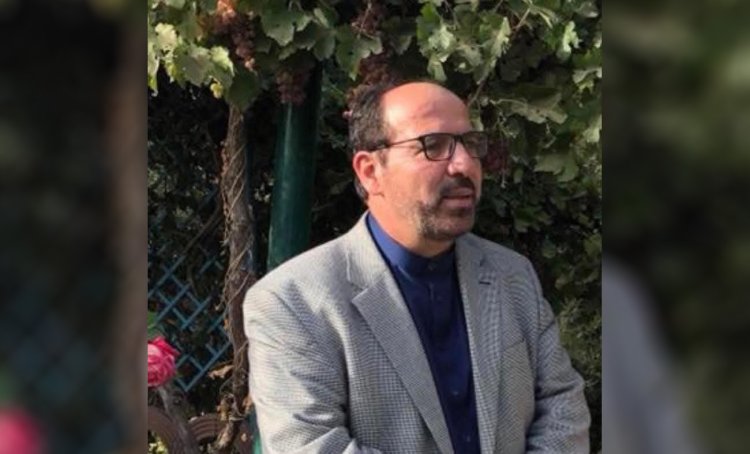Arrest of a poet in Kabul: Taliban intensify crackdown on cultural and civil activists

Sources in Kabul report that the Taliban's intelligence agency has arrested Sayed Alam Hashemi, a poet and cultural activist from Panjshir.
According to sources, Hashemi was detained on Sunday, February 16, from "Arya Township" in Kabul and transferred to the Taliban's intelligence department known as "Directorate 40."
The reason for his arrest remains unclear. However, sources indicate that he had recently written a poem titled Masoodnama, which narrates the history of resistance and struggle of the Afghan people against "oppression and invasion."
Hashemi’s family has no information about his whereabouts, and Taliban officials in Kabul have not commented on his detention.
This arrest comes amid growing concerns about the Taliban's widespread crackdown on critics and activists in Afghanistan.
Increasing Number of Political Prisoners
Leaked Taliban intelligence documents suggest that the total number of detainees in Taliban-controlled prisons exceeds 18,800. Among them are civil, social, and cultural activists who have been arbitrarily detained.
Last month, Hamza Alfat, a human rights activist from Daikundi, died just days after being released from Taliban custody, where he had been imprisoned for nearly two years. Reports suggest he succumbed to severe torture.
In November, the Taliban arrested Abdul Qudus Yasinzada, an education activist and head of Resalat schools in Herat, for teaching girls above the sixth grade—an act banned by the Taliban.
Reports of Torture and Human Rights Violations
Sibyl Mani, a human rights coordinator for the World Organization Against Torture, visited Afghanistan in August 2024 to assess the state of civil liberties and human rights. After meeting with women, human rights defenders, international organizations, and former detainees, she reported that torture of men and women in Taliban prisons is ongoing.
In an interview with Swiss Info, she revealed that men are often arrested for criticizing the Taliban, while women face imprisonment for protesting, seeking divorce, or failing to comply with the group’s strict dress codes.
The United Nations Assistance Mission in Afghanistan (UNAMA) previously published a report on the conditions of Taliban-controlled prisons. Between January 2022 and July 2023, UNAMA documented over 1,600 human rights violations in these facilities, with nearly 50% involving torture or other cruel, inhuman, and degrading punishments.
According to the report, prisoners under Taliban rule are deprived of basic legal rights, including family visits, legal representation, and medical care.
Taliban Denies Allegations
Despite mounting evidence, Taliban officials continue to deny reports of abuse. In November, Habibullah Badr, the Taliban’s deputy director of prisons, dismissed allegations of torture and enforced disappearances, claiming, "No one can prove that torture occurs in Taliban prisons."
However, statistics from Afghanistan International paint a different picture. Over the past three years, at least 87 detainees have reportedly died due to torture in Taliban prisons. Methods of torture allegedly include electric shocks, suffocation, simulated drowning, and sexual violence. Many of the victims were former military personnel, members of the National Resistance Front, and anti-Taliban activists.
As the Taliban's crackdown on freedom of expression intensifies, human rights organizations continue to call for international intervention. However, with the group tightening its grip on power, concerns remain over the future of activists and political prisoners in Afghanistan.
